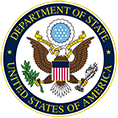No one could have possibly predicted we would be experiencing such rapid and drastic changes as a nation during this pandemic. Organizations have had to get creative on how best to respond to the crisis given the guidelines the CDC, local government and President have put into place.
For businesses and organizations, that has meant putting together a task force of HR, Finance, IT and Executives to address non-essential employees’ ability to work from home, and how to keep the essential ones safe to maintain operations and continuity of the business.
Ideally, organizational readiness for any type of change can take months and, in some cases up to a year to plan, prepare and implement. Due to the pandemic crisis, however, businesses and organizations had a week or so to adjust their operating procedures and implement changes quickly.
Quite a few businesses had to completely close their doors until further notice. Others are only allowing critical workers to work in the office and non-essential employees to work from home. Moreover, the pandemic has left thousands of employees unable to work and without pay.
Common Organizational Challenges Being Faced During The Pandemic
While some organizations may have had the infrastructure in place to allow remote work, the surge of employees working from home created a new set of issues. This is especially true as it pertains to the IT network. Without a doubt, there is an increased capacity of employees utilizing it for video conferencing, business calls or accessing files needed to carry out day to day functions.
Our current economic state has raised some tough questions for organizations and businesses regarding their ability to handle change:
- Is the organization able to conduct business in an alternative fashion if the traditional way were not feasible?
- Can the current IT infrastructure handle an increased capacity of employees working remotely so it does not pose a threat for employees being able to work effectively and without disruption to the continuity of business?
- Are there policies and procedures in place to provide guidelines on how the business will run in an alternative state when and if needed
Learning, growth and development is highly encouraged. Allowing managers to coach, mentor and adjust objectives on an ongoing basis.
Organizational Readiness: A Need to Think Beyond the Scope of the Pandemic
An important lesson that has been learned from this pandemic is that organizational readiness plans for future crises and pandemics will need to be created for business to adapt quickly and respond to the needs of its employees and clients with very minimal disruption as possible.
The economy depends on organizations, albeit, small, medium or large; to provide goods and services, employ a multitude of trained, skilled and educated people for commerce to thrive.





